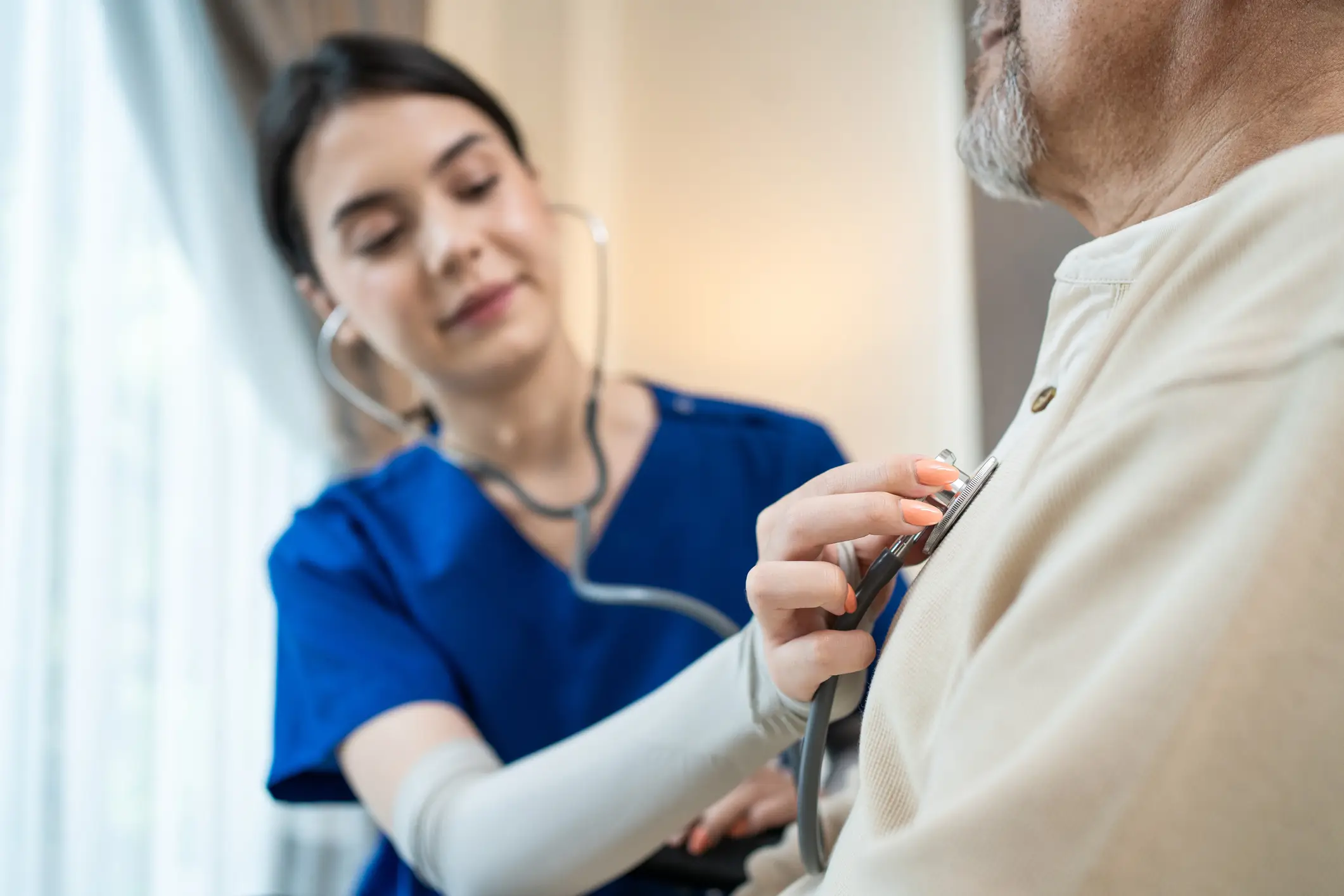
Many of us know the key signs to look out for when it comes to a heart attack, but it isn't always the crushing pain like you see on the TV.
Especially for women, the symptoms can terrifyingly be much more subtle.
A cardiologist has opened up about six of the signs you should keep an eye out for when it comes to monitoring your heart health.
Fans were recently stunned when Emma Willis revealed she had undergone heart surgery, after discovering she had a hole in her heart.
Advert

She shared a picture post-surgery on her social media, saying she had spent 48 years of her life blissfully unaware that there was anything wrong
Dr Oliver Segal is a consultant cardiologist and electrophysiologist at The Harley Street Clinic, and he has warned what to do if you think you are having heart problems.
He told the Independent: “If you experience a severe symptom, like chest pain or severe breathlessness, you probably require urgent medical attention at A&E, but if your symptoms are mild going to a GP is a very reasonable thing to do.
“They can measure your pulse and your blood pressure and can have a listen to the heart and lungs to make sure everything sounds okay. Many GPS will also have access to doing ECGs (a medical test that records the electrical activity of your heart).”
Here are six of the signs you should look out for.
Breathlessness
Chances are, if you ever experience being out of breath you'd probably put it down to just overdoing it in the gym or running up the stairs. However Dr Segal says there are things to be mindful of.
"Breathlessness could also be put down to all sorts of things, like chest infections, being unfit or the weather,” he says.
“But, it could imply either heart failure of some description or a heart rhythm problem.”
Activity and exercise might seem like a good thing, but they can cause problems if its linked to heart issues.
“For example, if you’ve got heart failure or your heart muscle function is impaired, or you’ve got a bowel heart valve problem, then typically the breathlessness will be much worse when you try and do something. However, rhythm disturbances are different.
“Atrial fibrillation, for example, can occur randomly and if it happens to occur at rest you may feel breathless at rest, and then the next day you might be able to run around wherever you want, and you’ll feel back to normal.”

Chest Pain
We've all seen the TV shows and films where people suddenly clutch their chest before dropping down, but it can be much more subtle than that, says the cardiologist.
“The type of chest discomfort that people often put down to indigestion or being unfit could be a warning sign of angina or an impending heart attack," he warned.
“Classically, but it will vary hugely, it’s a dull ache in the chest rather than a sharp pain."
It's often a lot less dramatic than we're used to seeing, and focuses on the 'middle of the chest across the front', he says.
Again, exercise tends to be the main offender, with the uncomfortable sensation disappearing when you rest.
Left arm pain
This is one of the more well-known ones, but pain in the left arm shouldn't be ignored.
So why does it hurt, exactly?
“Characteristically, heart pain goes into the left arm, and it’s to do with the nerve supply of the heart and sharing that nerve supply with the arm. It’s pain that radiates into another part of the body just because of the way nerve supply works.”
Palpitations
Chances are if you've ever experienced palpitations, you've just brushed it off as anxiety.
While this is often the case, Dr Segal says it could be something more serious.
He says while it could be 'stress', it can also be a 'type of arrhythmia, like atrial fibrillation'.
The expert says: "Frequent skip beats, for example, are often subtle and most of the time that will be benign, but sometimes it can be a sign that the heart muscle is struggling."

Dizzy Spells
Some dizziness is normal to some degree, but if it happens regularly it's worth getting looked at, says the cardiologist.
"Most of us get dizzy occasionally, normally because of getting up too quickly, but dizzy spells could indicate that there is a problem with the heart rhythm and that it is going too slowly or sometimes too quickly.”
Be mindful of a severe dizzy spell where you have to hold onto furniture to stay upright.
“If your dizzy spells are happening frequently or they’re severe, then that would be a key indicator to seek urgent medical attention. Many times there will be absolutely nothing to worry about, but it’s certainly a symptom to look out for.”
Extreme Fatigue
We all get tired at some time or another, but extreme fatigue shouldn't be ignored, says Dr Segal.
“There are probably hundreds of causes of fatigue, and the heart is just one possible explanation,” says Segal.
“But atrial fibrillation, for example, which is the most common heart rhythm problem, characteristically causes fatigue and lethargy. Heart failure can also make people feel fatigued.”
Topics: Health, NHS, Women's Health